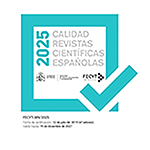Novelty in Badiou’s Theory of Objects: Alexander and the Functor
Abstract
Alain Badiou’s treatment of objects in Logics of Worlds is both rich and highly technical, though its terminological challenges are softened by his use of illuminating examples. This article takes a twofold approach to the topic. In a first sense, the theory of objects developed in Logics of Worlds by way of an imagined protest at the Place de la République in Paris exhibits two questionable aspects: (1) the notion that the object is a bundle of qualities (found proverbially in Hume, but also in Kant’s “transcendental object=X”), and (2) the ultimately idealist assumption of a possible isomorphy between appearance and reality. But in a second sense, Badiou’s transcendental account of worlds leads him to a fascinating theory of exemplary entities, one that is immune to the critiques of onto-theology made by Heidegger and Derrida. This can be found in his account of the “transcendental functor” in Alexander the Great’s decisive victory over Darius III at the Battle of Gaugamela in 331 B.C.E.
Downloads
##submission.format##
Licenza
La revista Res Publica. Revista de Historia de las Ideas Políticas, para fomentar el intercambio global del conocimiento, facilita el acceso sin restricciones a sus contenidos desde el momento de su publicación en la presente edición electrónica, y por eso es una revista de acceso abierto. Los originales publicados en esta revista son propiedad de la Universidad Complutense de Madrid y es obligatorio citar su procedencia en cualquier reproducción total o parcial. Todos los contenidos se distribuyen bajo una licencia de uso y distribución Creative Commons Reconocimiento 4.0 (CC BY 4.0). Esta circunstancia ha de hacerse constar expresamente de esta forma cuando sea necesario. Puede consultar la versión informativa y el texto legal de la licencia.









